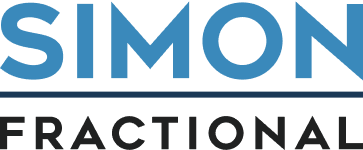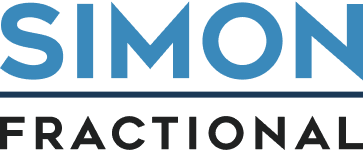In today’s data-driven world, data privacy isn’t just a regulatory checkbox for B2B SaaS companies—it’s a business imperative. As global regulations like GDPR, CCPA, and others tighten, ensuring compliance not only avoids penalties but builds trust, a crucial factor in customer retention and acquisition.
With SaaS companies handling vast amounts of customer data, a breach or non-compliance issue can have devastating consequences. Whether it’s financial penalties, reputational damage, or loss of customer confidence, neglecting data privacy can severely hinder a company’s growth and sustainability.

Why Data Privacy Matters for SaaS Companies
A 2023 Deloitte report revealed that 73% of B2B buyers are more likely to engage with companies that prioritize data privacy. In the SaaS industry, trust is a significant factor influencing purchasing decisions, renewals, and brand loyalty.
Non-compliance with data privacy regulations can lead to hefty fines—as much as 4% of annual global turnover under GDPR—as well as irreparable reputational damage. For instance:
- The Marriott Data Breach (2020): The hotel chain was fined £18.4 million by the UK’s Information Commissioner’s Office (ICO) for failing to protect customer data. This breach, which exposed the information of 339 million guests, resulted in widespread reputational damage.
- Meta (Facebook) GDPR Fine (2023): Meta was fined a record-breaking €1.2 billion for violating European data transfer laws, demonstrating the increasing stringency of regulations.
These cases highlight the financial and operational risks associated with non-compliance and the necessity for SaaS companies to implement a strong data privacy framework.
Key Challenges in Data Privacy Compliance for SaaS
Despite the increasing focus on compliance, SaaS companies face several challenges:
1. Navigating Regulatory Complexity
Different regions have varying data privacy laws:
- GDPR (Europe): Enforces strict rules around data protection and consumer rights.
- CCPA (California): Requires businesses to disclose how they collect and use personal data.
- LGPD (Brazil): Regulates the processing of personal data with high penalties for non-compliance.
- PIPL (China): Imposes strict rules on data transfers and processing.
For global SaaS companies, compliance means keeping up with multiple jurisdictions, each with its own enforcement measures.
2. Maintaining Customer Confidence
SaaS buyers demand transparency on how their data is collected, stored, and used. A lack of clarity leads to skepticism, impacting sales cycles and renewals. According to Cisco’s 2023 Data Privacy Benchmark Study, 92% of consumers say they want more control over their data.
3. Resource Constraints
Implementing a comprehensive data privacy program requires significant investment in:
- Technology (e.g., encryption, firewalls)
- Employee training (e.g., data handling best practices)
- Legal expertise to navigate evolving regulations
4. Third-Party and Vendor Risks
Many SaaS companies rely on cloud providers, third-party APIs, and integrations. A weak security framework in any partner system can introduce vulnerabilities. A Ponemon Institute study found that 51% of businesses experienced data breaches due to third-party vulnerabilities.
5. Data Breach Preparedness
Cyberattacks targeting SaaS companies are on the rise. Even companies that comply with privacy laws need incident response plans to minimize the impact of potential breaches.
Practical Strategies for SaaS Companies to Ensure Compliance
- Conduct Regular Data Audits
- Identify what personal data is collected and why.
- Map out data flows and ensure alignment with compliance requirements.
- Remove unnecessary data storage points to minimize risk exposure.
- Implement Data Minimization PracticesCollect only the necessary data. Many companies over-collect customer information, increasing regulatory risk. For example, if your SaaS platform doesn’t require birth dates, don’t ask for them.
- Train Employees on Data ProtectionEvery department—from marketing to customer support—must understand data privacy best practices. Regular training ensures that teams:
- Handle data securely
- Understand phishing threats
- Follow proper encryption and storage protocols
- Leverage Secure TechnologiesInvesting in the right tools enhances data security and compliance:
- Encryption: Ensures sensitive data is protected during transmission and storage.
- Multi-Factor Authentication (MFA): Reduces risk of unauthorized access.
- Firewalls and Endpoint Security: Helps detect and prevent cyber threats.
- Update Privacy Policies and Customer AgreementsEnsure your privacy policy is:
- Transparent
- Written in simple, clear language
- Provides customers with opt-in/opt-out choices for data sharing.
- Appoint a Data Protection Officer (DPO)For SaaS companies operating in highly regulated regions, hiring a Data Protection Officer (DPO) ensures proactive compliance and risk mitigation.
Real-World Example: Salesforce’s Approach to Data Privacy
How DataTrust Solutions Improved Retention Through GDPR Compliance
In 2022, DataTrust Solutions, a mid-sized SaaS firm, revamped its data privacy policies and implemented GDPR-compliant opt-in features. By giving customers more control over their data and clearly communicating compliance measures, the company saw:
- 30% increase in customer retention
- 12% reduction in churn within six months
This case highlights that transparency leads to customer trust and retention.
How Salesforce Uses Data Privacy as a Competitive Advantage
Salesforce, a global SaaS leader, places data privacy at the core of its operations:
- The Salesforce Trust Website offers real-time security updates and transparency reports.
- Customers can manage data-sharing preferences directly within the platform.
- Salesforce regularly publishes compliance certifications to assure clients of regulatory adherence.
Their commitment to privacy-by-design strengthens customer trust, setting a benchmark for the SaaS industry.
The Future of Data Privacy in SaaS
As AI, automation, and big data become standard in SaaS, new challenges emerge:
- AI GovernanceRegulators are scrutinizing automated decision-making. SaaS companies must:
- Disclose how AI models process customer data.
- Implement bias mitigation frameworks.
- Offer explanations for AI-driven recommendations.
- Increased Scrutiny on Data BrokersGovernments worldwide are cracking down on third-party data trading. Companies will need stricter controls over how customer data is shared.
- Harsher Penalties for Non-ComplianceRegulators are becoming more aggressive in enforcement, with record-breaking fines being issued. SaaS businesses that delay compliance face greater financial risk.
Next Steps for B2B SaaS Companies
To strengthen compliance and customer trust, SaaS companies must:
- Conduct a comprehensive data privacy audit to identify risks.
- Update privacy policies to align with evolving regulations.
- Implement strong security measures (encryption, MFA, data minimization).
- Train staff on best practices to prevent accidental violations.
- Regularly review regulatory updates to stay ahead of compliance shifts.
- Clearly communicate data policies to customers to foster trust.
Data privacy is no longer just a legal requirement—it’s a business differentiator. SaaS companies that prioritize data protection will gain competitive advantages, retain customers, and avoid costly penalties in the evolving regulatory landscape.

